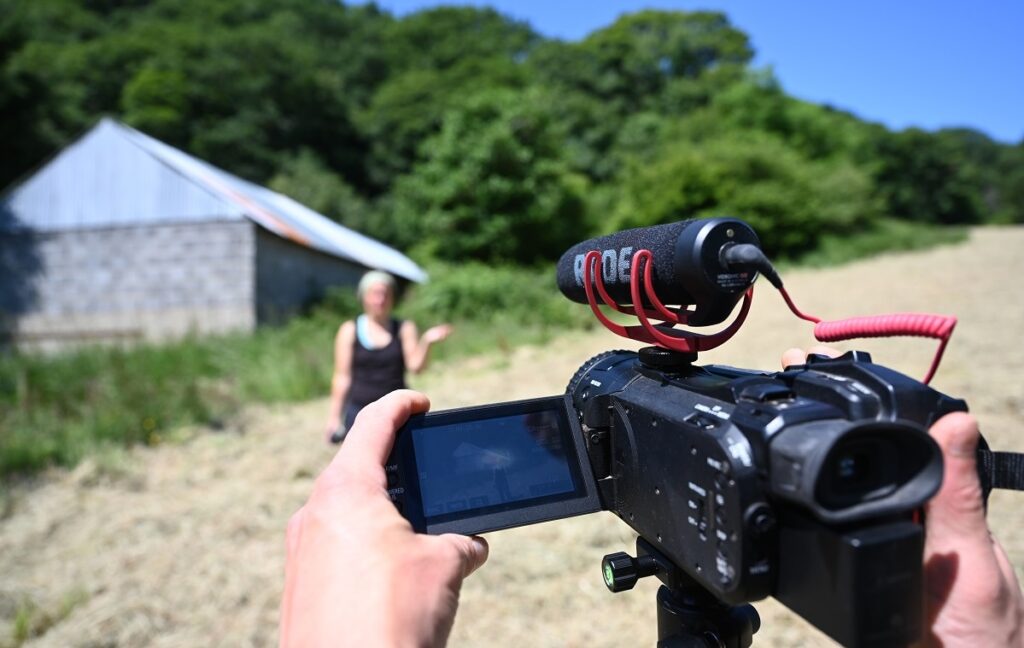
A new project is seeking to hear from farmers on how agriculture can ensure food security, build community connection and resilience, overcome economic insecurity, while helping to tackle the ecological and climate crisis.
PhD researcher, Bethan John, is working to set up a collaborative research project with farmers and environmentalists to explore the issues that are impacting rural communities in West Wales.
Through running a series of storytelling and filmmaking workshops, the aim is to create space and time to explore a diversity of views and experiences, building on common ground and collectively problem-solving.
The project will be community-led, using co-production and creative methods to gain insights into the issues that are most relevant to the participants, with the aim of creating policy impact.
The outcome of the project will be the co-creation of a community-made film or series of films, which capture the voices and vision of farmers and environmentalist, in all the complexity, nuance and richness of real-life experiences.
Capturing community knoweldge
The researcher, Bethan, grew up in a rural farming community near Carmarthen, in West Wales, and now lives in North Pembrokeshire. She’s spent her career capturing the stories of communities and the complex social, cultural, economic and political issues that they face, while trying to navigate and adapt to the ecological and climate crisis. She is interested in how community-based knowledge and grassroots action can drive change.
“There is a wealth of expertise within the rural communities where I live. One of the aims of this project is to capture and value this knowledge, while exploring a diversity of views and lived experiences to see if solutions emerge”, Bethan explains.
So far, she has completed a series of interviews with farmers and environmentalists to explore opportunities, challenges and tensions, especially in relation to the Sustainable Farming Scheme (SFS).
The interviews gave participants the opportunity to share their views on the issues anonymously and in a private one-to-one setting. The themes that emerged from the interviews are now informing the development of the workshops and are a part of the project’s multi-method approach.
Storytelling and Filmmaking: Tools for Change
There’s a wealth of academic research that demonstrates the importance of storytelling and creative expression, as a way of reflecting on and engaging with complex issues that can help solve real-world problems.
Dr Cathy Cole, a senior lecturer and project supervisor, says: “Collective storytelling can act as a bridge to enable cooperative solutions to emerge. This may be particularly important in the context of farming, where media narratives are often divisive. Participants in this study care deeply about the land, and this is powerful common ground.”
The first storytelling and filmmaking workshops were held in early October 2025 and were made up of a small group of farmers. The group were guided through a variety of activities to generate ideas and discussions, while being trained in storytelling and filmmaking skills. The group created storyboards together and are now in the early stages of working on a collaborative community-made film project.
If you are a farmer or environmentalist and are interested in getting involved in the project or would like to keep up-dated, please complete this short online form or contact Bethan for more information: bsj3@aber.ac.uk.
This project is a collaboration between the Centre for Alternative Technology, Aberystwyth University, Cardiff University, and is funded by the Arts and Humanities Research Council (AHRC).